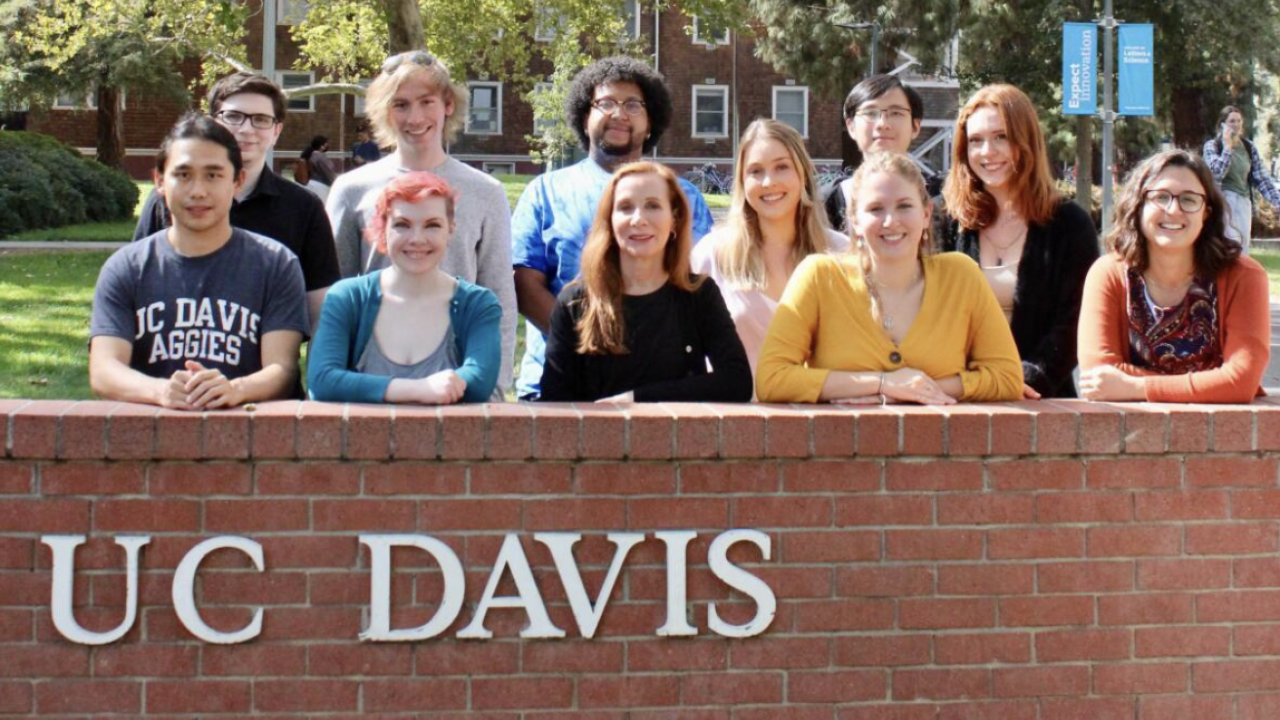
Program Gives Jumpstart to Student Researchers
ASPIRE casts wider net for students to pair with world-class faculty mentors
When Valerie Klein enrolled at UC Davis on a pre-med track in fall 2021, her mind's-eye image of research revolved around looking at cells under a microscope. Thanks to a program that gets students into labs early, the aspiring psychiatrist is now investigating frontiers of the human brain and has gained a more expansive view of research.
Klein said the program, Accelerating Success by Providing Intensive Research Experience, or ASPIRE, has vastly widened her vision of research through hands-on experience.
“Getting to learn about the mind as well as brain chemistry is really interesting to me,” she said. “I'm very happy that ASPIRE is around for that sake — to get a new perspective on everything.”
Through ASPIRE, Klein has worked as a research assistant in the lab of Richard Huskey, an assistant professor of communication and cognitive science, since her second quarter at UC Davis.
Just halfway through the four-year ASPIRE program, the neurobiology, physiology and behavior major has already participated in a study of people’s brain activity while working in pairs on a collaborative task — and presented findings in a poster session at a Cognitive Neuroscience Society meeting in San Francisco.
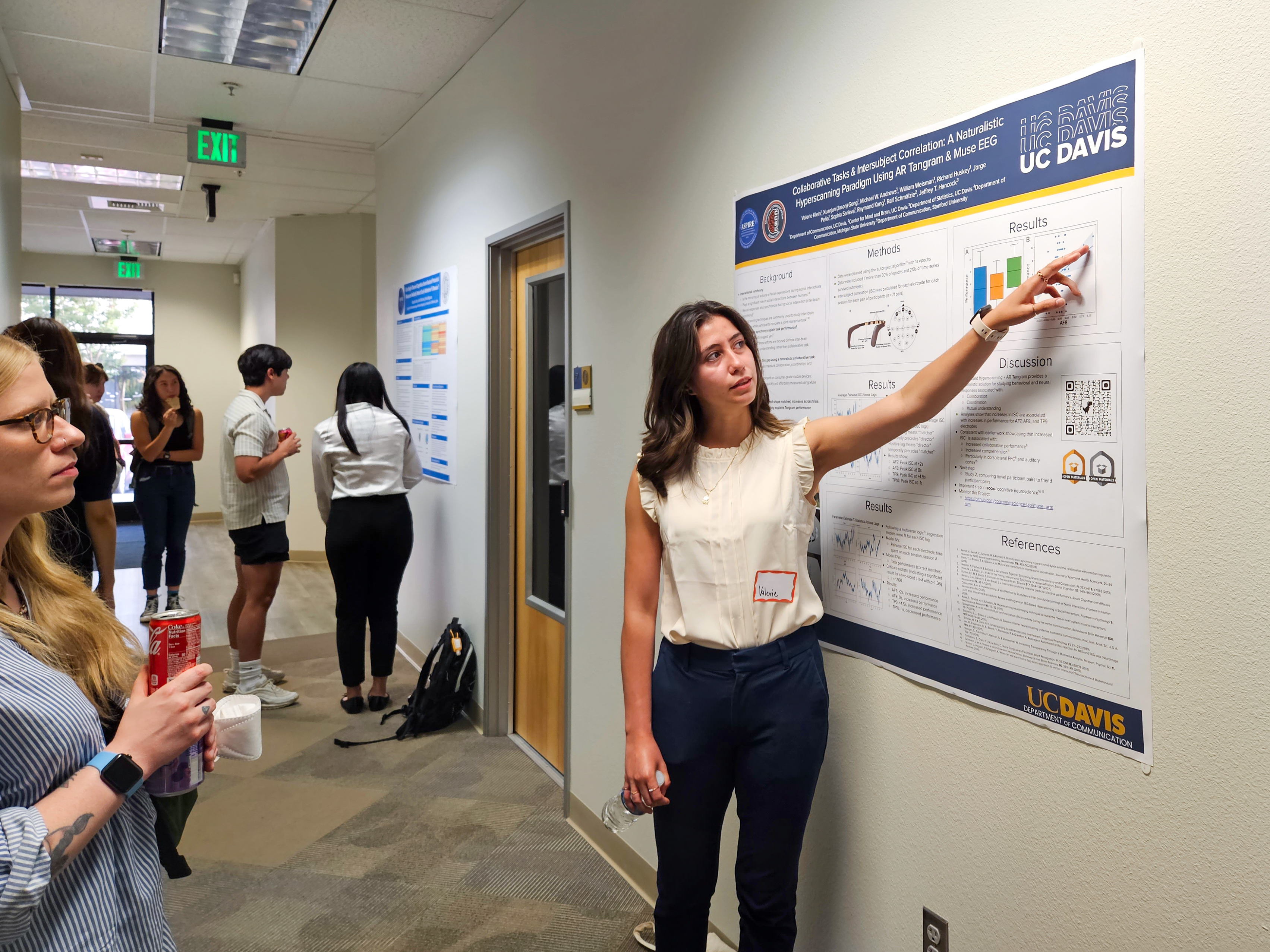
As she finished her second year at UC Davis, Klein began exploring topics for independent research to undertake in the lab for her honors thesis.
And that, according to program co-founder Steve Luck, was a motivating goal for establishing ASPIRE in 2014.
“We kept having this experience in our lab where students wouldn't even apply until they were juniors — and oftentimes when they were seniors,” said Luck, a Distinguished Professor in the Department of Psychology and at the Center for Mind and Brain. “Few of them were able to gain the research skills needed to take on an independent project for the University Honors Program.”
Preparing students for independent research
To solve this problem of participation, Luck and then-postdoctoral researcher Emily Kappenman (Ph.D., psychology, ’12) launched ASPIRE, modeling it on a program Kappenman participated in during her early undergraduate studies at Indiana University, Bloomington. Kappenman has since joined the psychology faculty at San Diego State University.
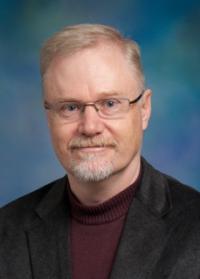
Now entering its 10th year, ASPIRE currently has 27 students and 42 alumni. Some of those alumni are attending top graduate programs in neuroscience, linguistics and other fields.
According to Luck, the program transforms students’ lives. “Where the student ends up after participating in ASPIRE is quite far from where you would have otherwise expected,” he said.
Expanding the program’s reach
While based at the Center for Mind and Brain, ASPIRE accepts applications from first- and second-year students of any UC Davis major. Those accepted to the program are matched, based on research interest, with one of 53 participating faculty members campuswide who study aspects of how the mind and brain work.
The Team Behind Aspire
- In addition to Distinguished Professor Steve Luck, ASPIRE has been co-directed for several years by Michaela DeBolt, a psychology doctoral candidate, and Erie Boorman, associate professor in the Department of Psychology and at the Center for Mind and Brain.
- Two graduate students joined the team this year as assistant directors for diversity, equity and inclusion: Shannon Klotz in developmental psychology and Jace Kuske in biological psychology, both first-generation college graduates who have been strong advocates for undergraduate research.
Initially, the program was open only to honors students. In 2019, ASPIRE coordinators began reaching out to a wider pool of students — spreading the word in large introductory courses and sharing information with other departments and colleges on campus.
Rather than focusing solely on students with the best academic records, coordinators look for applicants who show promise for making the most of ASPIRE — students who have worked their way up in jobs, started or led clubs, and taken initiative to identify and solve problems. .
ASPIRE seeks to help students, under the mentorship of world-renowned faculty, develop research skills to “make new discoveries and become knowledge creators,” according to the program’s website. In addition to research, ASPIRE students also present their work at a symposium held at the end of each academic year.
Students earn academic credit for their research; most work for free, though some receive payment through work-study and occasionally through grant-funded summer jobs.
Luck is seeking donations to support the program, which operates on a shoestring budget. “What I would love to be able to do, for those who have real need, is pay them for their time in the lab,” Luck said. “It can really make a difference. Any amount would be helpful.”
A first-generation graduate student
Isaias Ceballos (B.A., psychology and cognitive science, ’22) worked a part-time job, sometimes two, while completing his double major and a minor in education, and participating in ASPIRE research.
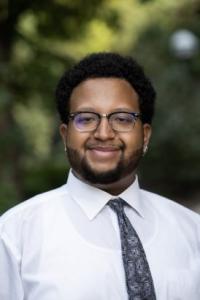
Ceballos applied to ASPIRE as a second-year student after trying, without success, to find entry into a faculty lab. “It was pretty competitive for research positions, especially in the psychology department,” he said. “You had to reach out to [professors], you had to do the labor yourself. I really wasn't having any luck. When I heard about ASPIRE. I applied to it, and I interviewed, and then everything kind of fell in place.”
Based on his interests, Ceballos was placed in the psycholinguistics lab of Fernanda Ferreira, a professor in the Department of Psychology.
“Honestly, at the time, I didn't even know that psycholinguistics was a thing before I got into my lab,” he said.
Major events would soon inspire his own research project — the pandemic, which shut down most in-person research three months after he started, and the murder of George Floyd by a police officer in Minneapolis two months after that.
“My research was about how racialized adjectives are interpreted as microaggressions — epithets referring to someone's racial identity and how they can be interpreted as offensive,” he said.
His interest in microaggressions was born of his experiences growing up in southeast Los Angeles, the oldest of four children of a Mexican American father and a Black mother.
“In Los Angeles, there’s a lot of tension between Black and brown communities, especially in southeast Los Angeles,” Ceballos said. “I dealt with a lot of discrimination going on. Aside from slurs, I experienced like a lot of microaggressions.”
To get to UC Davis, he overcame other obstacles, including completing high school without a computer in his home. He did homework assignments using a computer at a nearby public library.
The first in his family to graduate from college, Ceballos is now a linguistics doctoral student at the University of Michigan, Ann Arbor, where he is continuing his research on microaggressions. He hopes to become a professor someday.
Ceballos, who also participated in the McNair Scholars Program and the Educational Opportunity Program, credits ASPIRE with helping him find his calling in linguistics. Without it, he said: “I wouldn’t have any of the connections that I do with faculty at Davis. I definitely wouldn't be here [in graduate school] without ASPIRE.”
Access to a ‘hidden curriculum’
ASPIRE also changed the life course of Raphael Geddert (B.A., psychology; B.S., neurobiology, physiology and behavior; ’17).
Geddert was a second-year undeclared biology major with his sights on medical school when he joined ASPIRE in the program’s first year in 2014-15.
“I think it directly led me to where I am today,” said Geddert, who is now a doctoral candidate in cognitive neuroscience at Duke University in Durham, North Carolina.
“I never really was that into pre-med. It was just like the thing to do for smart people who like biology. It was a very clear-cut path that I could like [well enough], but I didn't really enjoy it that much. And then I started doing ASPIRE and I realized, ‘This is way better. I love this!’”
Before joining ASPIRE, Geddert had little clue about how to find an undergraduate research position.
“I wouldn't have known that I should email professors if I hadn't attended this initial information session,” he said. “There's a hidden curriculum for getting research experience. ASPIRE does a really good job of saying, ‘It's OK. We have a pipeline for you.’”
When he interviewed for a position with Luck’s lab, Geddert knew little about what cognitive neuroscience or even psychology research looked like. “I remember seeing Steve's little placard on his lab — the Laboratory for Translational Cognitive Neuroscience — and I didn't know what those words were,” he said.
During his three years in Luck’s lab, Geddert learned quickly, climbing a ladder of increasing responsibility.
Initially, he assisted with a project using electroencephalography, or EEG, to measure brain activity in study participants. By his junior year, he was co-leading a study that became the focus of his honors thesis and led later to him co-authoring an article in a scholarly journal. That study found that people suppress threat, suggesting that anxiety can be related to reducing rather than increasing attention to threat.
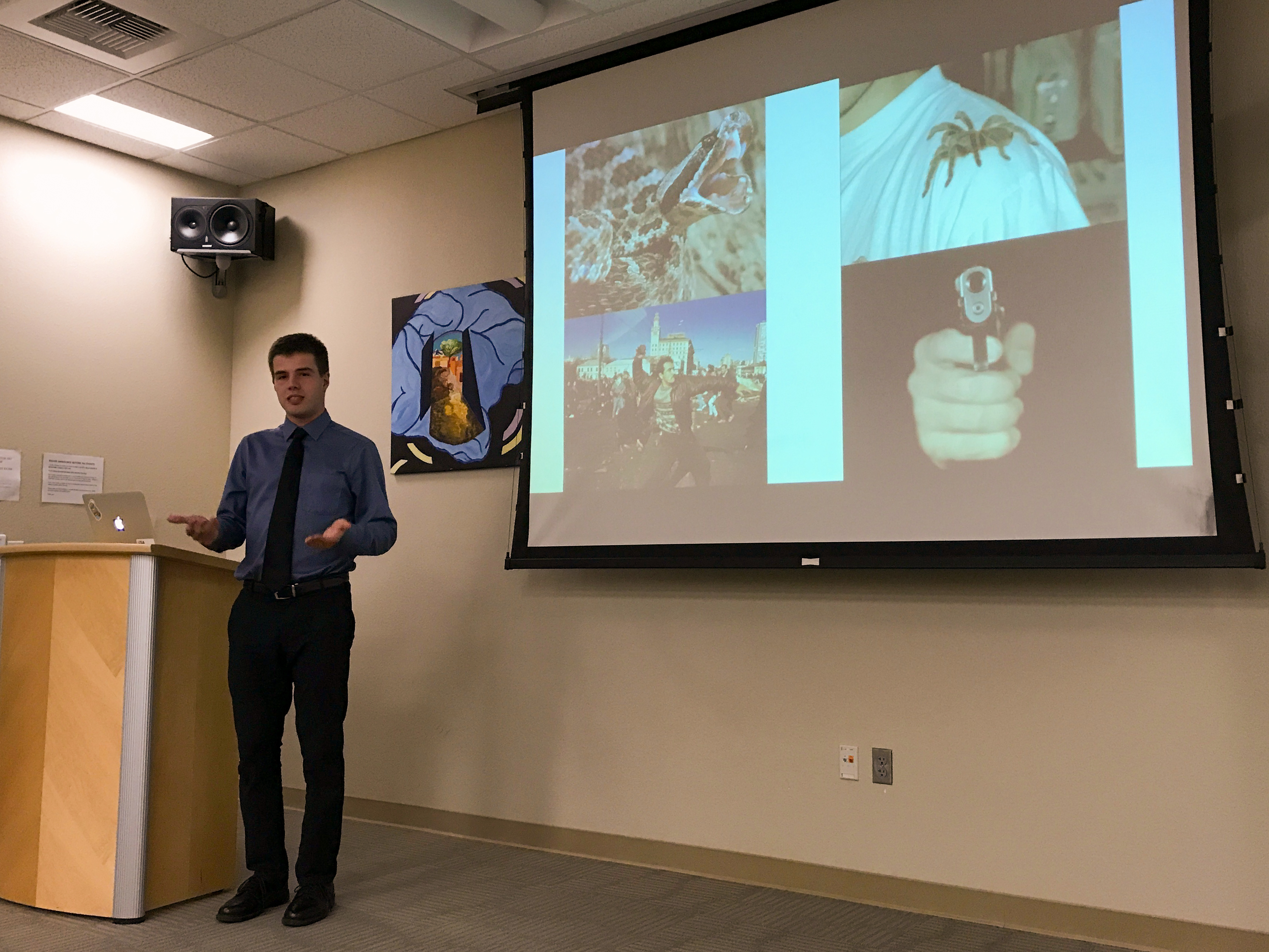
After graduating, he worked two years in an autism research lab at the UC Davis MIND Institute in Sacramento before starting his graduate program.
Now at Duke, Geddert is helping to develop a similar program to get undergraduates involved in cognitive neuroscience research — working to increase participation by groups that are underrepresented in research fields.
For UC Davis undergraduates interested in science, he said ASPIRE offers opportunities to develop a variety of transferrable skills including analytical thinking, programming, experiment design and project management.
“For anyone at all interested in research, it's such a cool opportunity to learn so much and have these world-class faculty invest in you and mentor you,” Geddert said.
